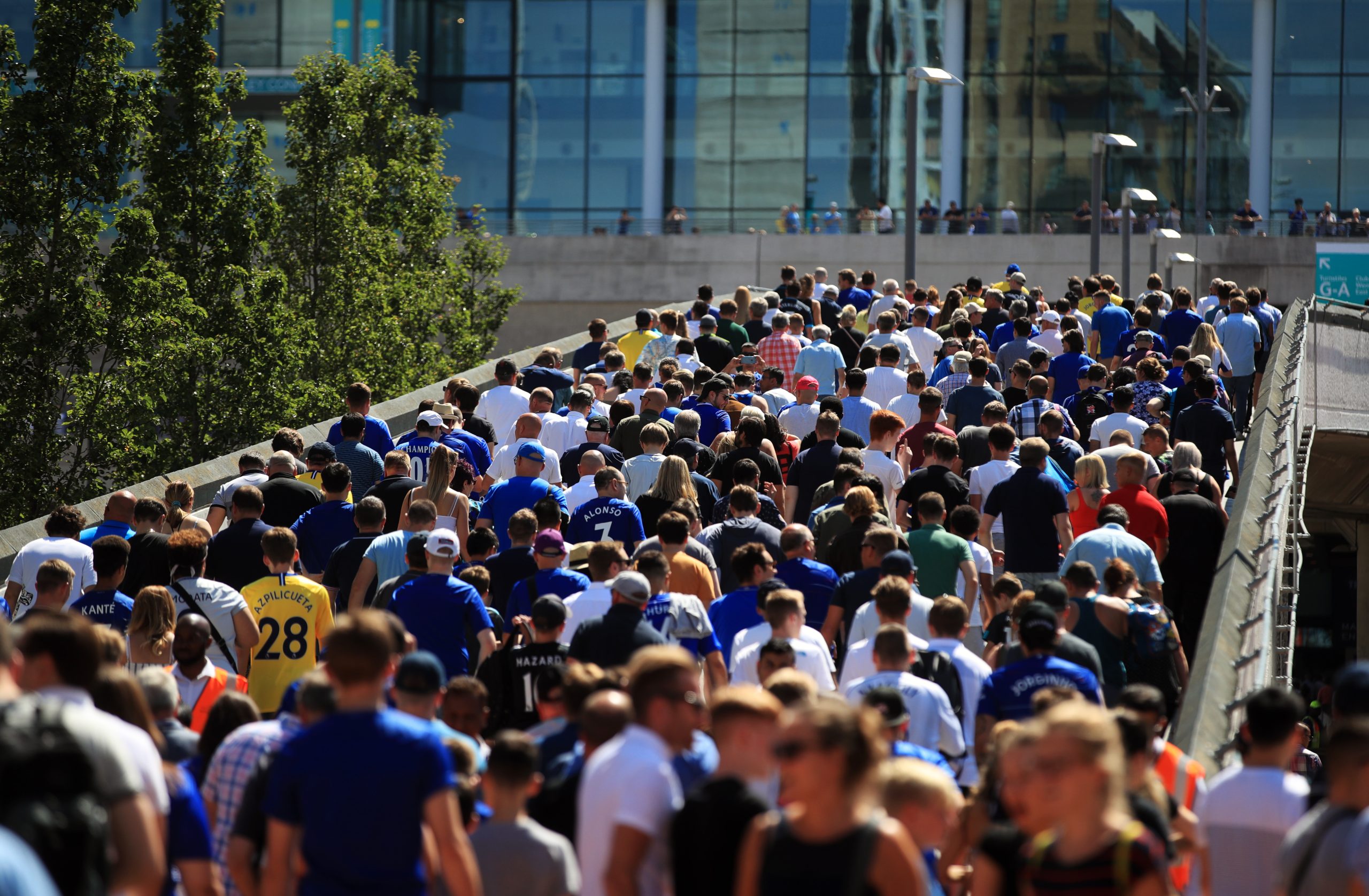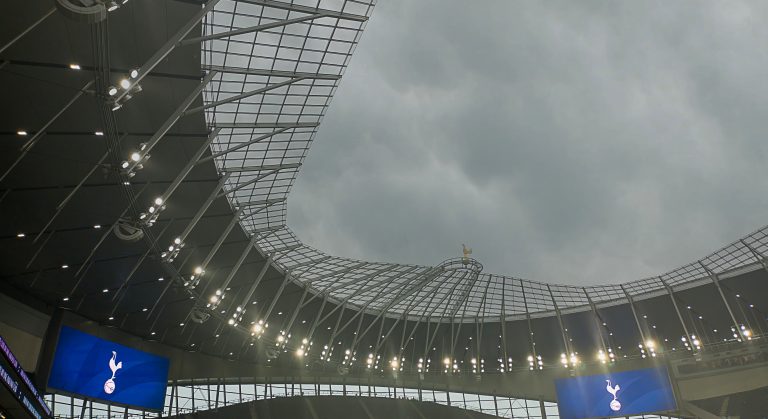Football
Top Club Attendances in English Football

Changes to stadium regulations have had a major impact on the attendances the top clubs in English football can reach. It was easier to pack the terraces when standing was allowed, meaning many of the largest club attendances in English football came long before the mega-money of the Premier League era.
Teams have spent billions on stadia since the Premier League was founded. State-of-the-art facilities and multi-sport venues make for some phenomenal places to watch football, but they haven’t necessarily led to larger attendances.
Here are the clubs with the largest attendance records in English football, starting with the only entry from the 21st century:
Tottenham Hotspur
- Spurs Record Attendance: 85,512 vs Bayer Leverkusen (November 2016)
Tottenham played their Champions League home matches at Wembley prior to moving there for all their home fixtures in 2017-18. When Mauricio Pochettino’s men faced Bayer Leverkusen in Champions League Group E on 3rd November 2016, an all-time record was set for the largest attendance in English football.
Spurs lost 1-0 to a goal from Leverkusen midfielder Kevin Kampl. The result put them in a difficult position in the group with two matches to play.
The Lilywhites ultimately finished third in the section and slipped into the Europa League. They were knocked out of the continent’s secondary competition by Gent in the Round of 32.
Manchester City
- Man City Record Attendance: 84,569 vs Stoke City (March 1934)
Manchester City held the record for the largest attendance in English football for over 82 years.
Almost 85,000 fans crammed into Maine Road for a sixth-round FA Cup tie between the Sky Blues and Stoke City in March 1934.
The hosts won 1-0 before beating Aston Villa 6-1 in the semi-final and Portsmouth 2-1 at Wembley.
Chelsea
- Chelsea Record Attendance: 82,905 vs Arsenal (October 1935)
It’s fitting that Chelsea’s record attendance came against one of their bitterest London rivals. A shade under 83,000 people packed into Stamford Bridge to watch a 1-1 draw between Chelsea and Arsenal in October 1935.
Stamford Bridge is a small stadium for a club of Chelsea’s stature, which makes it all the more remarkable the same venue housed such a huge crowd between the wars.
Manchester United
- Man United Record Attendance: 81,962 vs Arsenal (January 1948)
For the second time on this list, an Arsenal away match ended in a 1-1 draw. This time Manchester United were the hosts, though they were playing at Maine Road after Old Trafford had suffered damage during the Second World War.
Arsenal beat the Red Devils to the Division One title, but United won the FA Cup for just the second time in their history.
Everton
- Everton Record Attendance: 78,299 vs Liverpool (September 1948)
A Merseyside derby produced a record-setting crowd in 1948-49 just eight months after Manchester United’s record attendance at Maine Road.
Huge crowds were commonplace after the Second World War. It’s no surprise Everton and Liverpool managed to attract such an enormous audience for this 1-1 draw.
It wasn’t the best season for the Merseyside clubs, however, with Everton narrowly avoiding relegation and Liverpool finishing 12th in Division One.
Record Premier League Attendances by Club
- Spurs Record Premier League Attendance: 83,222 vs Arsenal (February 2018)
- Manchester United Record Premier League Attendance: 76,098 vs Blackburn Rovers (March 2007)
- Arsenal Record Premier League attendance: 60,383 vs Wolves (November 2019)
- Liverpool Record Premier League attendance: 57,158 vs Man United (December 2023)
- Manchester City Record Premier League Attendance: 54,693 vs Leicester City (February 2016)
- Newcastle Record Premier League Attendance: 52,227 vs Chelsea (November 2023)
- Sunderland Record Premier League Attendance: 48,355 vs Liverpool (April 2002)
- Chelsea Record Premier League Attendance: 46,824 vs Manchester United (November 2003)
- Aston Villa Record Premier League Attendance: 45,347 vs Liverpool (May 1994)
- Everton Record Premier League Attendance: 40,552 vs Liverpool (December 2004)







